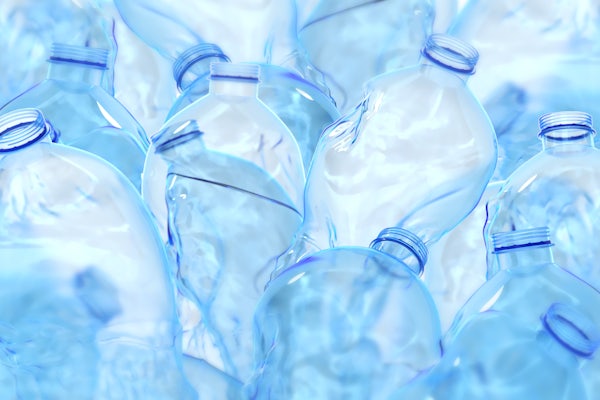Can bacteria solve the plastic waste crisis?
Tae Seok Moon to investigate with Department of Energy grant

The world’s prolific use of single-use plastic products, such as water bottles and plastic bags, produces about 300 million tons of plastic waste annually. While recycling programs exist, only 7% to 9% of plastic waste gets recycled, 12% is burned and the rest accumulates in landfills and pollutes the environment, according to the United Nations Environment Programme.
Tae Seok Moon, an environmental engineer in the McKelvey School of Engineering at Washington University in St. Louis, plans to address the plastic waste problem with a bacterium that would upcycle the plastic into a value-added chemical with a three-year, $861,571 grant from the U.S. Department of Energy. The grant was one of 34 projects funded by the Department of Energy’s Office of Biological and Environmental Research totaling $45.5 million to advance biotechnology research to create clean biofuels and bioproducts.
“Since China and India have banned importing plastic waste, there is no way in the U.S. to treat plastic bottles but to export them, recycle them, put them in a landfill or burn them, which causes climate problems,” Moon said. “This project is a way I can contribute to the community by solving the plastic problem.”
In this project, Moon plans a process to convert plastic into a value-added material. First, he plans to discover, engineer or improve an enzyme that degrades plastics and insert it into a bacterium he discovered and engineered for which he has a patent pending. The enzyme breaks down the plastic into monomers. The bacterium eats the monomers and converts them into a high-value chemical, such as lycopene or beta carotene.
“This is a high-risk, high-reward project, but we have many preliminary data already,” Moon said. “I have wanted to do a project with plastic for many years. I have a passion for it because this is a very important, challenging problem to solve.”
Moon is working with the university’s Office of Technology Management to obtain an issued patent on the bacterium and the process he has developed and to establish a startup company to further develop and commercialize this technology.



